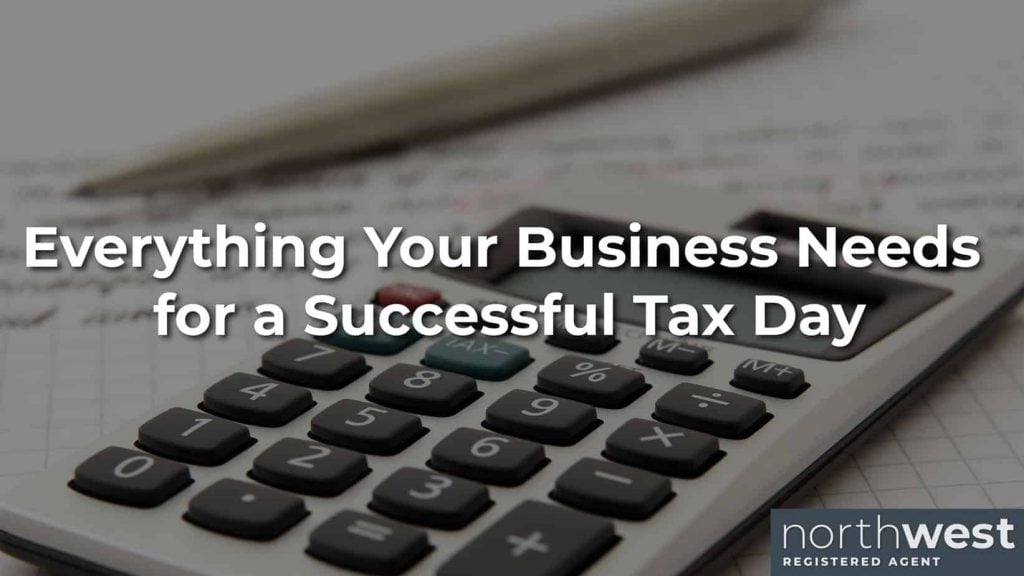Everything Your Business Needs for a Successful Tax Day

Spring is in the air, which means tax season is just around the corner. Whether you do your own business taxes with pen and paper, dump your data into tax software, or hand it all off to a CPA, you’ll need to spend some time gathering together some essential tax information.
Even if your tax preparation method involves paying someone to figure it all out, remember that tax preparers aren’t magicians. (Well, maybe a little.) Still, they can’t make something out of nothing. It’s on you to provide them fundamental information about your business, income and expenses in a timely manner. So what exactly do you need for a successful tax day?
1. The Correct Due Date
If you’re new to paying business taxes, you may assume that all annual tax forms are due April 15th. Nope. Have a partnership, multi-member LLC or S corp? These businesses typically file Forms 1065 or 1120S, which are each due a full month earlier than normal corporate or personal returns. That’s March 15th for businesses operating on a calendar year.
Knowing when your filings are due is essential. You don’t want to drop off a box of paperwork to your CPA a few weeks too late and get stuck with a late penalty. A late 1065, for instance, will set you back $210 per month per partner. Yikes.
Not sure which forms you need to file? Take a look at the chart below.
-
Business
Forms & Schedules
Due Date*
Sole Proprietorships and Single-Member LLCs
-
Schedule C or C-EZ
-
Schedule SE
April 15th
Businesses taxed as Partnerships
- Form 1065 and Schedule K-1
- (Individual partners file Schedule SE in addition to personal returns)
March 15th
Businesses taxed as S corps
- Form 1120S and Schedule K-1
March 15th
Businesses taxed as C corps
- Form 1120
April 15th
-
*The due dates are for businesses operating on a calendar year. For fiscal year businesses, taxes are due on the 15th day of either the 3rd or 4th month after tax year close.
Note that these forms and schedules are just general business requirements. Individuals may still need to file personal returns as well, and you may need to file different or additional forms, depending on the specific tax situation of your business.
2. General Business Information
Tax filings require some basic information about your business. While some requirements are a bit more obvious (like your business name), you may have to look up other information such as your EIN or the date you started or incorporated your business. Commonly required information includes:
- Business name
- EIN or social security number
- Business address
- Business start date
- Business assets
- Accounting method (cash or accrual)
3. Income Information
Whether you file personal, corporate or just informational returns, the IRS’s main interest is income. As such, you’ll need to gather together information related to your business income, including:
- Gross receipts
- Sales records
- Any sales returns (refunds) or allowances (discounts)
- Any interest from checking or savings accounts
- Any dividends
- Any capital gains
- Any other income
If you sell a product, you’ll also need to provide the information needed to calculate the cost of goods sold. That includes your inventory at the beginning and end of the year, cost of labor, and costs of inventory, materials and supplies purchased in the year.
4. Records of Deductible Expenses
Business deductions can drastically reduce your taxable income. To get deductions, however, you’ll need to gather together the records for your deductible expenses. Common deductions include insurance, mileage, rent, utilities, travel, advertising, office supplies, employee wages, taxes, and legal fees. And while expense records may not exactly spark joy, let’s hope you hung on to all your receipts and mileage logs.
5. Other Important Documents and Information
There are a few other odds and ends that will be useful to have in hand when filing your business taxes:
- Last year’s business tax return
- Any IRS tax statements you receive in the mail
- Copies of any other tax-related documents you’ve sent or received (such as 1099s)
- Any profits and losses statements, balance sheets, payroll documents, or other general accounting documents for your business
Having your own business doesn’t mean you have to be a tax expert. It does, however, mean that you’ll need to keep tax dates on your radar, keep careful records, and be able to produce those records when tax season rolls around.



